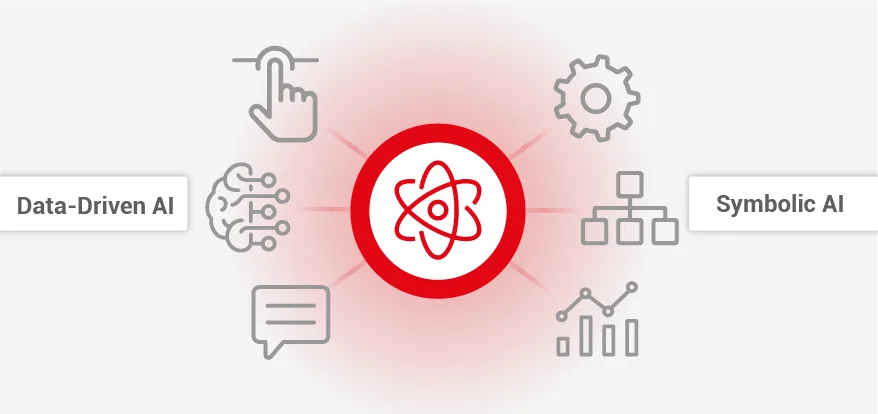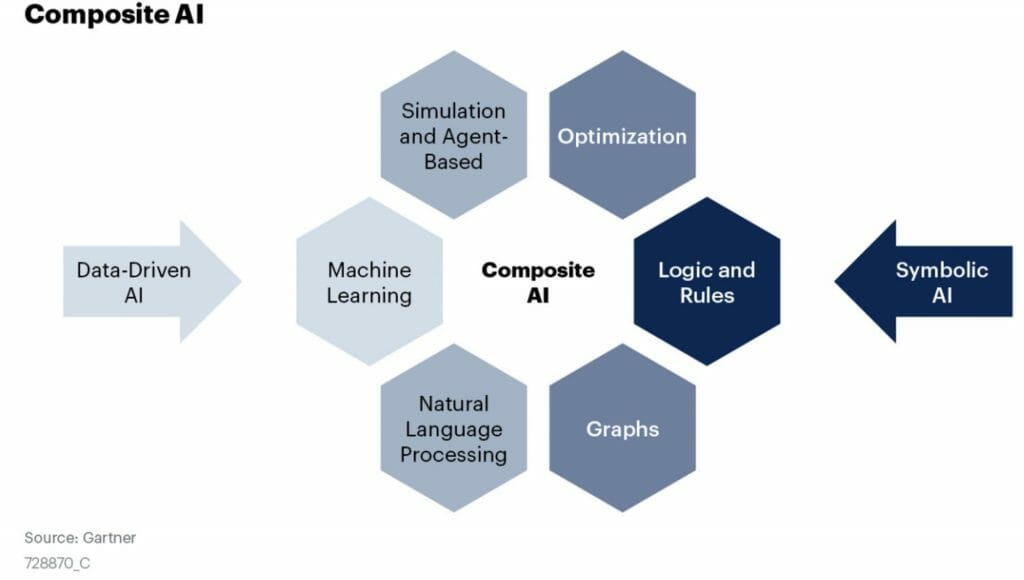
Gartner says Composite AI is Required to Super Charge Decision Intelligence
According to a 2022 Innovation Insight on Composite AI report by Gartner, “Data and analytics leaders often equate artificial intelligence with machine learning, limiting themselves to use cases where this technique works well. Composite AI goes beyond ML, combining different techniques to improve AI’s versatility and efficiency to solve a wider range of business problems and overcome the limitation of current single technique AI approaches.”
What is Composite AI?
Across industries, organizations today face more complex problems than ever before, involving vast quantities and multiple types of data. Solving them requires a combination of innovative analytic approaches. To achieve the best results for complex business problems, develop higher levels of knowledge representation and improve learning efficiency, companies often combine different AI with other analytical techniques. This ability to combine multiple AI technologies into a single solution is referred to by Gartner and others as Composite AI.
Composite AI refers to the combined application of different AI techniques to improve the efficiency of learning, to broaden the level of knowledge representations and ultimately, to solve a wider range of business problems in a more efficient manner.
In the past, we might have called this multidisciplinary AI. But the new term better reflects how the techniques are integrated holistically to address unique challenges. Composite AI achieves this by synergizing a mix of different types of AI – machine learning, anomaly detection, forecasting, traditional rules-based systems, optimization techniques, natural language processing and graph techniques – in order to improve AI systems’ learning efficiency. It brings them together in a complete solution instead of using them separately.

While the concepts behind composite AI are ultimately not new, techniques from different AI domains offer unique approaches to address different aspects of an overall business problem. Depending on the context of a specific use case, different AI techniques or more often a combination of AI techniques will make more sense than relying on ML as a “one size fits all” approach. There are two main benefits of the composite AI approach.
- First, composite AI is one of the strategies to deal with ‘small data’ as it brings the power of AI to a broader group of organizations that do not have access to large amounts of historical or labeled data but do possess significant human expertise.
- Second, it helps to expand the scope and quality of AI applications, in the sense that more types of reasoning challenges and required intelligence can be embedded in composite AI.
According to the Gartner report, by 2024 70% of organizations relying solely on ML for AI initiatives will spend more money per model than those leveraging composite AI techniques. Composite AI functions are helpful for any industry, sector, or company process. They do not take the place of current investments but rather enhance them – composite AI is the next stage in AI’s growth. Some applications where composite AI can have significant business impact include:
- Predictive maintenance: heuristics + deep learning
- Supply chain management: multiple agents
- Computer Vision: deep neural networks + graph
Diwo’s Decision Intelligence Platform Leverages Composite AI to Accelerate Decision-making
One of the key takeaways from the report about Composite AI is to apply decision management with business rules, knowledge graphs, or physical models in conjunction with ML models to leverage domain knowledge and human expertise to give context and complementation to data-driven insights. For those leaders who are working to go beyond BI in order to act faster, and capitalize on opportunities faster, Composite AI can supercharge DI’s capabilities. Diwo’s Decision Intelligence Platform contains all the principles of Composite AI as outlined by Gartner but takes the process one step further by using NLP and patented Contextual Intelligence to deliver a prescriptive, actionable recommendation that simply needs to be evaluated in order for a user to quickly and confidently make a decision. This dramatically shortens the length of time it takes for Composite AI to deliver actual business value.